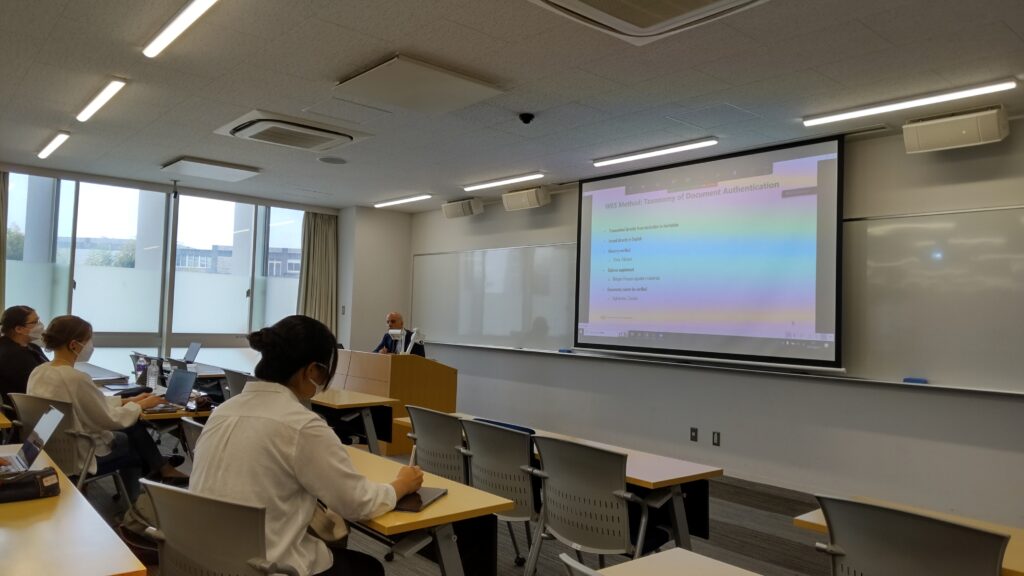2022年8月27日、SIIEJ2022のワークショップ「Standards of International Credential Assessment」が関西大学千里山キャンパスで行われました。

Presenters発表者
資料ダウンロード
資料ダウンロード
Contents内容
Beka introduced the experiences of World Education Services (WES) as a credential evaluation provider. The Documentation Standards part covers how to verify the legitimacy of academic institutions, five levels of document authenticity from the least to the most reliable one, corresponding transmission procedures, and the use of terms that applicants are familiar with to set document requirements. The Principles of Credential Evaluation Methodology part includes the general criteria for course-by-course assessment and the utility of course-by-course evaluation in supporting people to apply for professional licensure and further education. The risks and challenges of fraudulent academic documents, diploma mills, academic corruption, and countermeasures are discussed. The credential evaluation for refugees and alternative methods to assess non-verifiable credentials are shared. Some exercises in assessing the qualifications of refugees in different scenarios are also explained.
Joanna introduced Australia’s recognition system and the Australian Government Department of Education’s methodology for assessing overseas qualifications to promote two-way mobility. Using the Australian Qualifications Framework as the benchmark, the qualitative method of credential assessment assesses the comparability of overseas qualifications and Australian ones. Joanna also showcased how to use the Country Education Profiles at https://internationaleducation.gov.au to assess a bachelor’s degree obtained in the USA.
The challenges of academic corruption and fraudulent documents, and the evaluation of partial study or micro-credentials were discussed.
Reporter
Yan Deng (Graduate School of Asia Pacific Studies, Waseda University)
